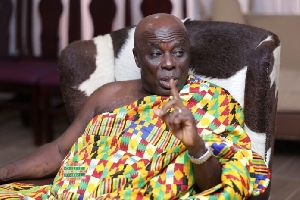General News of Thursday, 1 August 2019
Source: kasapafmonline.com
More parents withdrawing their kids from private schools in Ada East
It has emerged that more parents are taking their children out of private schools in the Ga East District and enrolling them into the public ones in that area.
This is due to what officials of the Ghana Education Service in the district say is the incentives associated with attending public schools as a result of government policies.
This came to light during a forum organized by the Greater Accra Youth Network to discuss findings of a research conducted from 2014 to 2016 and which looked into the performance of children in Science, Mathematics and English language in the region.
Disclosing this to EIB Network’s Munsah Lansah on the sidelines of the forum, Mrs. Augustina Brown who is the Coordinator of Basic Schools in the Ga East District revealed that, since the introduction of government policies such as computer placement as well as school feeding program, there has been a rise in parents withdrawing their children from the private schools in the area to public ones.
She said, “It is interesting to note that parents are now taking their children from private schools to public ones. I don’t know about other areas in the region but in my area, I have seen a rise in that phenomenon. I think this is due to the policies being implemented by us. Policies such as the computer placement system and the school feeding program”.
She added that the school feeding program especially is encouraging more children from extremely poor homes to enrol with the public schools. According to her, the poverty levels in most communities prevented scores of children from enrolling in schools but since the introduction of the school feeding policy, the situation is changing.
The coordinator of basic schools bragged about the quality in the public basic schools. She stressed, “When it comes to quality the public schools have it. We have the brains and all the resources to ensure children have holistic education”.
Distribution of Teachers
A member of the team that conducted the research, Godson Charnor, on his part, expressed worry at the distribution of teachers in the Greater Accra Region.
According to him, they realized that there is an over-concentration of trained teachers in urban centers than in the rural communities. This he believes is not good in terms of ensuring equity.
“We found out that teachers are often concentrated in urban centers leaving the rural areas with a few trained teachers. This goes a long way to affect the performance of pupils in the rural communities which tends to affect total outcomes of the schools in the region”, he disclosed.
Mr. Charnor expressed concern at the performance of teachers in the region, especially, so that the results of pupils keep swinging on a pendulum. “We did not understand why in some instances we have great results from the pupils and in other times we experienced bad results”, he exclaimed.
Touching on what needs to be done, Mr. Charnor called for the re-distribution of teachers in the region.
This, he believes, will ensure equitable distribution so that rural communities will benefit from trained teachers.
Private schools employing more trained teachers
Researchers also disclosed to participants at the forum that private schools in the capital have now resorted to employing more trained teachers than before.
According to the researchers, the number of trained teachers in private schools in the Greater Accra Region rose from 724 in 2014 to 1610 in 2016.
They described the development as welcoming news since most private schools previously could not engage the services of trained teachers due to their inability to pay such teachers well.
The GYDEP Program
The Foundation for Security and Development in Africa is implementing the Ghana Youth Development Enhancement Project in four regions. It is to help the youth in the project regions to demand for accountability from duty bearers in terms of development. It is being implemented in the Upper East, Upper West, Greater Accra and Volta regions.
The forum in attracted over hundred (100) youth from various groups in the Greater Accra regions who deliberated on how to improve education outcomes in the area.













